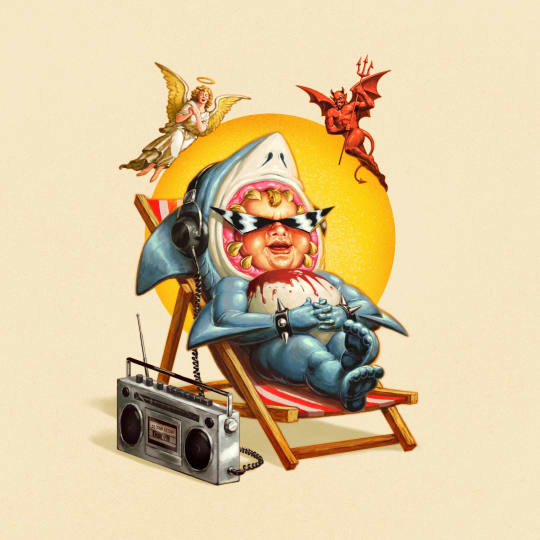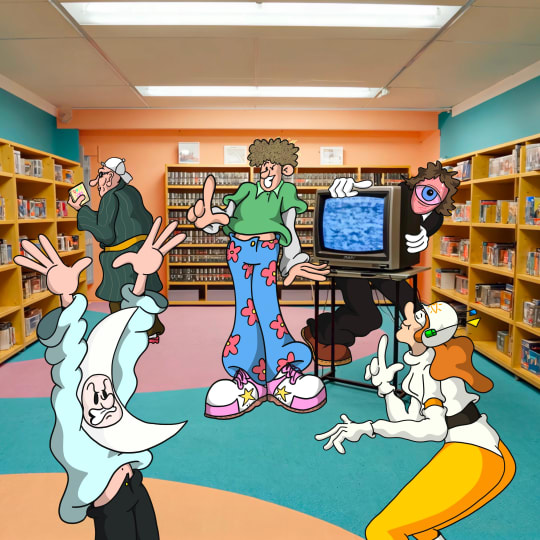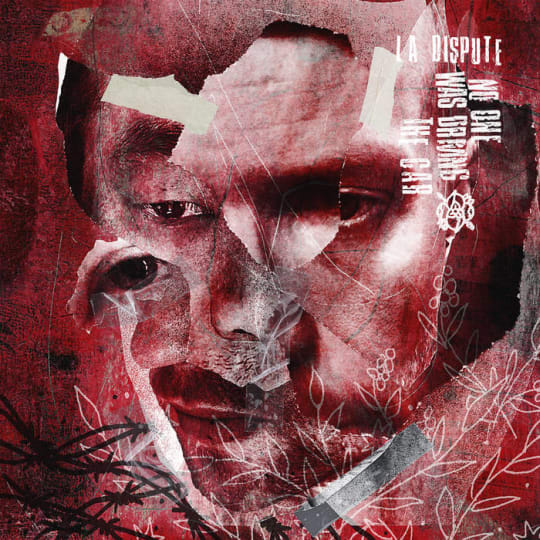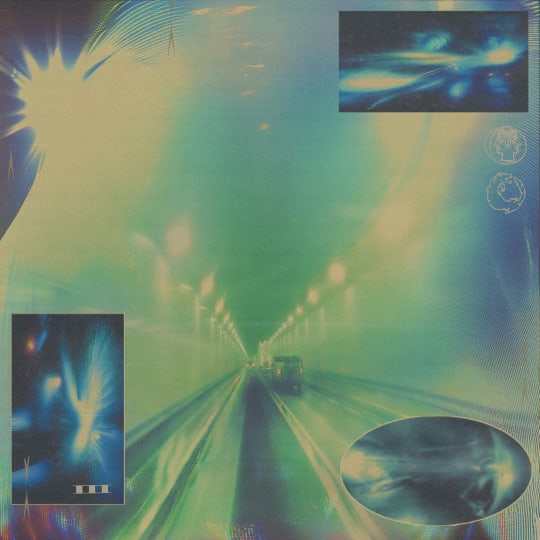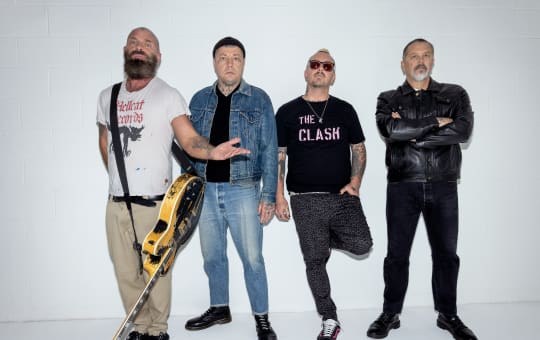Upcoming Shows
See All-
7.18.2025Gijón, SpainTsunami Xixón 2025
-
7.18.2025Mansfield, OHInkcarceration Music & Tattoo Festival 2025
-
7.18.2025Mansfield, OHInkcarceration Music & Tattoo Festival 2025
-
7.18.2025Mansfield, OHInkcarceration Music & Tattoo Festival 2025
-
7.18.2025Grand Rapids, MichiganUpheaval 2025
Shop
Visit StoreDreams of Being Dust EcoMix LP
The World is a Beautiful Place & I am No Longer Afraid to Die
News
See AllNevertel Share Slow Burning Single “Some Things” New Album ‘Start Again’ Out Sept. 12 Via Epitaph
Upcoming
See All
Listen
YouTubeFeatured Video
YouTubeFeatured Video
YouTubeFeatured Artist
See Allpoptropicaslutz!
poptropicaslutz! wants to make sure music never sounds stale. The Long Island duo of Nick Crawford and Christian Cicilia break all the rules of taste and tangibility, blending elements of the music they grew up on in the 00s: shiny and slick pop rap, sheen and hook-filled Top 40 pop, angst-filled and direct emo pop punk, and other genres to create a kaleidoscope of sound that refuses to be categorized. Rising to fame off a few viral TikToks, the group has parlayed this success into a devoted cult following that has helped them achieve over 50 Million+ Streams in a short amount of time. Songs such as sleek emo pop punk-inspired “Hollywood High” (5 Million Streams) felt like a loving tribute to the Hot Topic era, while other hits like “Grandma Got Run Over By A Lawnmower” (4 Million+ streams) exudes teen angst baked in irony, underscored by a sound more akin to the Hyperpop boom of anguished songwriters such as Glaive and blackwinterwells. The duo has become synonymous for their raucous live shows, making them a must-see act on the east coast. With praise from New Noise Magazine and Ones To Watch, along with earning the distinction of “the future of pop” by Rolling Stone UK, the band has turned heads on and off the internet. With their new album, ‘the new 925’, the group once again reinvents themselves, dialing down the aggression and focusing on layering as many hooks as possible into music that reflects their lives in Southern California today. The album acts as a voyeur into the lives of the group, leading to their most honest and revealing work yet. Growing up in Long Island, childhood friends Nick Crawford and Christian Cicilia always had an interest in music. Raised off the eclectic and transformative iPod and LimeWire days, their ability to access any music they wanted influenced their early instrumental experimentations. But for Crawford, it was witnessing the showmanship and command of Kanye West on his famous Saint Pablo tour that solidified music was the only path. Cicilia had a different tune. Although music called to him, he had an acceptance letter from Cornell, an academic scholarship to St. John’s lined up, and pressure to go the school route over the impossible dream. Then, the world stopped. The pandemic allowed Crawford and Cicilia time to work on their chops, along with releasing songs to the public to gauge interest. Some of their early songs began to gain traction on SoundCloud, leading to an invitation to work in the studio with producer Dan Hartzog (6 dogs, sofaygo, and skaiwater), and collaborator Grandma (ericdoa, Willow, the Hellp). But a viral TikTok where the duo showed off their vivacious charisma, along with producing candy-coated sticky hooks that harkened back to the pop-punk takeover of the early 00s, was the sign they needed to pursue the dream. Nick dropped out of community college; Christian rejected the offer from Cornell; from here on, they were betting all their chips on poptropicaslutz! Success soon followed, viral moments playing live in New York City gave way to a flurry of singles that captured the New York DIY venue scene. “Our first show in New York, people had tattoos of us,” the band said. “They wanted our signatures and attention. Girls were chasing us down. It made us realize that we had a dedicated fanbase that made us bigger than we thought.” Tracks such as the angst filled ode to the music of the late 00s “I Miss 2007,” and the sneering earworm “bad habit (dramatic!),” gained them further recognition, becoming a torch bearer for a generation who grew up on classic Blink-182 and Jimmy Eat World. Their subsequent projects, EP just in case the world ends and debut album face for the radio/voice for a silent film, proved they could craft complete bodies of work, switching between the guitar filled angst they rose to prominence with and the contemporary hyperpop boom, mixed with warbled SoundCloud rap. But on their latest album, ‘the new 925,’ poptropicaslutz! ushers in a new era of creative freedom and expression. “We made the conscious decision to kill the old poptropicaslutz,” the band said. “But there's certain vibes and deliveries on the new project that’s reminiscent of our old music. We’re just bouncing between genres because we have so many influences. We don’t conform to genre, and I know a lot of people love us for that.” Songs such as the electric-laden party anthem “tryna get that kate moss,” captures the essence of debaucherous nights that go on far too long, fitting in with the current indie sleaze and club revival Gen Z has ushered in New York. While other tracks like “house on the beach” feels like a 3 A.M. night drive on the Pacific Coast Highway, the band takes a more liminal and atmospheric approach. On “RFSB” they take the listener on a pop song trope expedition, layering hooks and stuffing as many slick sing-along lines as possible for an irresistible earworm. With, ‘the new 925’, poptropicaslutz! become fully formed as a band, wearing their influences on their sleeve with love and care but twisting it to fit their sound. With the band finally embarking on the dream life they felt was always destined, their new album is a tour de force of rock, pop and rap: leading to a project that puts them at the forefront of Gen Z’s experimental Hip-Hop infused, SoundCloud sleaze scene.
Featured Video
YouTubeFeatured Artist
See AllRancid
Emerging from the blue-collar swamps of Berkley, California, Rancid has now been a living, breathing punk rock band for over a quarter century. Apparently, nothing can kill them. Back in 1991, after the demise of their much beloved and still influential first band, Operation Ivy, founding members Tim Armstrong (vocals, guitar) and Matt Freeman (bass, vocals) decided to do the impossible -- start an even better band. Thus, Rancid. Signing with Epitaph Records, the band released their first album, “Rancid,” in 1993. Shortly thereafter, Lars Frederiksen (vocals, guitar) joined the band, because... well, are you going to tell him he can’t? The result, in 1994, was “Let’s Go.” People noticed. In 1995, Rancid released the classic platinum-selling “...And Out Come The Wolves.” You still remember when you first heard it. They followed with the even more ambitious “Life Won’t Wait” in 1998, and in 2000, Rancid released another album entitled “Rancid,” just to see if anyone was paying attention. After “Indestructible” in 2003, Branden Steineckert (drums) joined to solidify Rancid’s current line-up. They subsequently released the albums “Let The Dominos Fall” (2009), “Honor Is All We Know” (2014), and “Trouble Maker” (2017). Through it all, Rancid has remained fiercely independent, never losing their loyalty to community or each other. Their music confronts political and social issues, while balancing personal tales of love, loss, and heartbreak with attitude. Rancid gives their listeners a community where everyone can belong. By carrying on the traditions and spirit of the original punk rock bands that came before, Rancid has become a legend an inspiration to punk bands that have come after. They are the living embodiment of East Bay punk. And if you don’t know all this by now -- you’re not playing their music loud enough! See ya in the pit.


